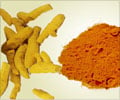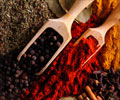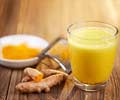Introduction
Asthma is an ancient Greek word meaning "panting or shortdrawn breath". It is in allergic reaction due to one or more allergens. It is the most troublesome of respiratory diseases. The asthma patient gets frequent attacks of breathlessness, in between which, he is completely normal.
Symptoms
Patients suffering from this disease appear to be gasping for breath. Actually, they have more difficulty in breathing out than breathing in. This condition is caused by spasms of the smaller air passage of the lung. The lungs get filled with air because the patient cannot drive the air properly out of the lungs. All asthmatics have more difficulty at night, especially during sleep.
Causes
Asthma is caused by a variety of factors. It is an allergic condition, resulting from the reaction of the system to the weather, food, drugs, perfumes and other irritants. Foods which generally cause allergic reactions are wheat, eggs, milk, chocolates, beans, potatoes, pork and beef. Quite often, however, it is precipitated by a combination of allergic and non-allergic factors, including emotional tension, air pollution, and hereditary factors.
Remedies
Honey (shahad): Honey is one of the most effective home remedies for asthma. It is said that if a jug of honey is held under the nose of the asthmatic patient and he inhales the air that comes into contact with honey, he starts breathing easier and deeper. The effect lasts for about an hour or so. Honey usually brings relief, whether the air flowing over it is inhaled or whether it is eaten or taken either in milk or water. It thins out accumulated mucus and helps its elimination from the respiratory passage.
Garlic (Lahsoon): Garlic is another effective home remedy for asthma. Ten cloves of garlic should be boiled in 30 ml of milk. This makes an excellent medicine for the early stages of asthma. The patient should take this mixture once daily. Steaming ginger tea with minced garlic pods in it, can also help to keep the problem under control and should be taken both, in the morning and evening.
Turmeric (Haldi): Turmeric is valuable in asthma. The patient should be given a teaspoon of turmeric powder with a glass of milk, two or three times daily. It acts best when taken on an empty stomach.
Bitter Gourd (Karela) Root: The roots of the bitter gourd plant have been used in folk medicine since ancient times. A teaspoon of the root paste, mixed with an equal amount of honey or juice of the holy basil, is an excellent expectorant, and is a remedy for asthma. It should be taken once every night for a month.
Figs (Anjeer) dry: Dry figs help clear mucus from bronchial tubes and are therefore a valuable food remedy for asthma. Phlegmatic cases of cough and asthma can be treated with success. It gives comfort to the patient by draining off the phlegm. Three or four dry figs should be cleaned thoroughly with warm water and soaked overnight. They should be taken during morning time in an empty stomach, along with the water in which they are soaked. This treatment may be continued for about two months.
Indian Gooseberry (Amla): This fruit has proved valuable in asthma. Five grams of gooseberry mixed with one tablespoon of honey, forms an effective medicinal expectorant and tonic for the treatment of this disease. It should be taken every morning. When fresh fruit is not available, dry gooseberry powder can be used, mixed with honey.
Linseed (Alsi): A decoction made from linseed is considered useful in curing congestion in asthma and to prevent recurrence of attacks. Simultaneously; linseed poultice should be applied externally at the lung bases for reducing internal congestion.
Mustard (Rye) Oil: During the attack, mustard oil mixed with little camphor should be massaged over the chest. This will loosen up phlegm and ease breathing. The patient should also inhale steam from boiling water mixed with caraway seeds (siya jeera). It will dilate the bronchial passage.
Dietary considerations:
The patient should avoid the common dietic errors. Ideally, it should contain a limited quantity of carbohydrates, fats and proteins which are acid-forming foods, and a liberal quantity of alkaline foods consisting of fresh fruits, green vegetables and germinated gram. Foods which tend to produce phlegm such as rice, sugar, lentils and curds as well as fried and other difficult-to-digest foods should be avoided. Asthmatics should always eat less than their capacity.
Other measures:
The patient should take enema in the beginning of the treatment to clean and colon and prevent autointoxication. Other helpful measures include application of mud-pack to the abdomen, wet chest packs and steam bath. Fresh air, breathing exercises, dry climate, mild physical exercises and correct posture help in treating the ailment.









